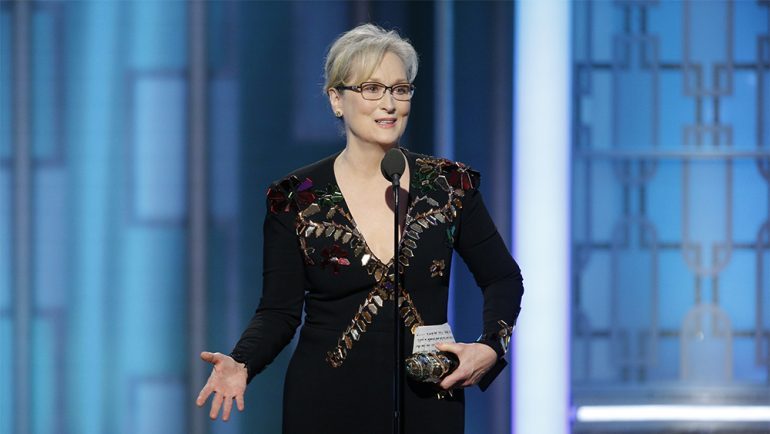Golden Globes: It’s Time to Pay Respect to Hollywood’s Foreign Press
By Tim Gray
LOS ANGELES (Variety.com) – It’s become an annual awards-season tradition to mock the Hollywood Foreign Press Assn. and the Golden Globes. But when xenophobia is on the rise and journalists are considered the “enemy of the people,” this is a good time to give a pat on the back to the .
For one, philanthropy: the organization has given $3.25 million to 80 nonprofits this year; $29 million over past three decades.
Second, the show on NBC is fun, which is no minor accomplishment.
Third, the HFPA has saluted TV and film work that “highbrow” voting groups ignored, from Gene Wilder in “Willy Wonka and the Chocolate Factory” to Hugh Jackman in “The Greatest Showman,” while the organization’s voters awarded “The X-Files” and “Mad Men” before anybody else did.
But mainstream media have been sniping for decades. Journalists love to write about other journalists, especially negative stories. The HFPA is an easy target because no other group of reporters has a multi-million-dollar TV deal. (Every year, there is griping: “How did this small group get to be so powerful?”)
Full disclosure: I was paid in 2017 to help the HFPA with its 75th anniversary book. I found the officers and most members, led by president Meher Tatna, honorable and hardworking.
Yes, there are a few members who are real lulus. But that’s true with any group of media members. (We all know some wack jobs in the New York and L.A. critics voting groups, but they get a free pass from fellow journalists.)
Working on the anniversary book, I found out a lot about the HFPA, including that members have been shrugging off the criticism for decades. But at one point, they struck back.
After the 1992 movie “Scent of a Woman” won three , including best picture, the New York Times wrote another in its long line of sneering articles, implying something was fishy, since HFPA members had been flown from L.A. to N.Y. for a press junket on the film. (Junkets are standard in the industry and Al Pacino was unable to come to L.A. for the film. But then, New Yorkers love to blast anything connected to Hollywood, particularly awards shows.)
The HFPA took out an ad in the Feb. 17, 1993, issue of Variety in the form of an open letter. It said the Times article was not only insulting to the HFPA, it was insulting to all Globes honorees.
The ad stated, in part, “It has always been easy for some of our colleagues in the domestic press to dismiss our work … We urge them to take a long, hard look at their attitudes toward the foreign press, an attitude that we find at best condescending and at worst xenophobic.”
In January 2017, Meryl Streep won the HFPA’s Cecil B. DeMille Award and her galvanizing acceptance speech focused on politics and the growing culture of bullying in America. Streep said, “All of us in this room belong to the most vilified segments in American society right now. Think about it: Hollywood, foreigners and the press.”
There are some dangerous people in the world, so it’s counter-productive to take potshots at each other instead of focusing on real problems.
It’s hard to paint the HFPA as victims or underdogs. They have more power than most other journalists; studios court them for their international coverage and for the influence of the Globes.
However, these things are mentioned far less than Pia Zadora or an NBC scandal from the 1960s. But it’s a reminder of an old Hollywood truism: When you get a reputation, it’s hard to shake.
Especially if you’re a journalist or have an accent.

